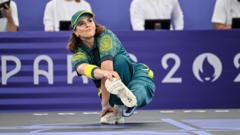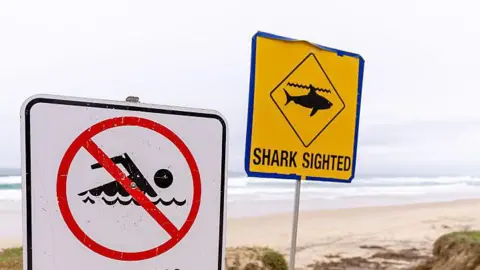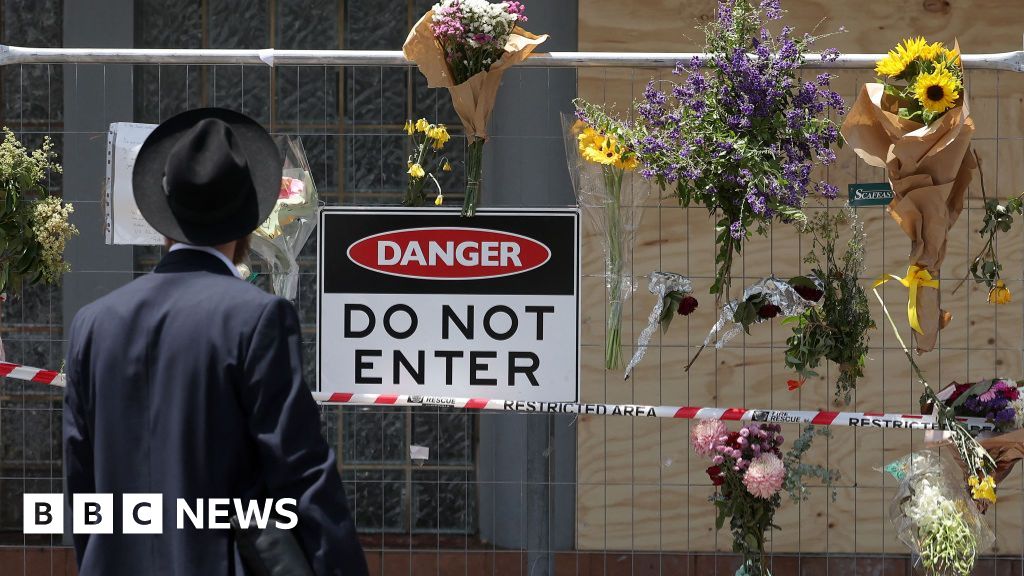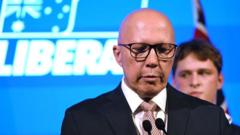In a surprising turn of events, 'Raygun: The Musical,' which was set to take the stage in Darlinghurst, Sydney, has been canceled after a legal threat from Australian breaker Rachael Gunn's team. The show, designed as a parody of Gunn's Olympic journey, was created by comedian Steph Broadbridge, who was also set to perform.
The cancellation came after Gunn's management issued a cease and desist order, insisting on the protection of Gunn's intellectual property and maintaining the integrity of her brand. Gunn's legal team emphasized their commitment to ensuring that her image remains strong and respected in the public eye.
Broadbridge took to Instagram to announce the show's cancellation, expressing her intent to return "with a whole new story arc" despite the setback. She assured ticket holders they would receive refunds for the A$10 tickets. The comedian noted that Gunn's legal team voiced concerns that her performance could damage Gunn's branding, a sentiment Broadbridge disagreed with, stating she would never intentionally harm it.
The unfolding drama has roots in Gunn's performance at the recent Olympics, where her unconventional breaking moves, including the 'sprinkler' and 'kangaroo-hop,' sparked both viral attention and backlash. Following her early exit from the competition, Gunn faced significant online criticism, prompting her to announce her retirement from the sport later on, citing the ordeal as "upsetting."
In addition to the legal cease-and-desist, it has emerged that Gunn's lawyers have trademarked the musical's promotional material and restricted Broadbridge from performing certain dances, like the kangaroo dance, which they claim Gunn "owns." Broadbridge has questioned this assertion, humorously reflecting on how such moves relate to Olympic dance rather than individualized choreography.
Despite the challenges, Broadbridge remains optimistic. She mentioned plans to alter the name of her character to "Raygun with an I," hoping this modification might alleviate some of the legal concerns raised by Gunn's team.
In their public statement to the Guardian, Gunn’s camp recognized Broadbridge's efforts and creativity, but reiterated the necessity of protecting Gunn's creative rights. They clarified this action was not meant to undermine other contributors but aimed at preserving the integrity of Gunn's work as she moves forward in her career.
The saga has highlighted the intersections of artistic expression, intellectual property, and branding in the world of performance art, especially in an era where social media can amplify both acclaim and criticism in unprecedented ways.
The cancellation came after Gunn's management issued a cease and desist order, insisting on the protection of Gunn's intellectual property and maintaining the integrity of her brand. Gunn's legal team emphasized their commitment to ensuring that her image remains strong and respected in the public eye.
Broadbridge took to Instagram to announce the show's cancellation, expressing her intent to return "with a whole new story arc" despite the setback. She assured ticket holders they would receive refunds for the A$10 tickets. The comedian noted that Gunn's legal team voiced concerns that her performance could damage Gunn's branding, a sentiment Broadbridge disagreed with, stating she would never intentionally harm it.
The unfolding drama has roots in Gunn's performance at the recent Olympics, where her unconventional breaking moves, including the 'sprinkler' and 'kangaroo-hop,' sparked both viral attention and backlash. Following her early exit from the competition, Gunn faced significant online criticism, prompting her to announce her retirement from the sport later on, citing the ordeal as "upsetting."
In addition to the legal cease-and-desist, it has emerged that Gunn's lawyers have trademarked the musical's promotional material and restricted Broadbridge from performing certain dances, like the kangaroo dance, which they claim Gunn "owns." Broadbridge has questioned this assertion, humorously reflecting on how such moves relate to Olympic dance rather than individualized choreography.
Despite the challenges, Broadbridge remains optimistic. She mentioned plans to alter the name of her character to "Raygun with an I," hoping this modification might alleviate some of the legal concerns raised by Gunn's team.
In their public statement to the Guardian, Gunn’s camp recognized Broadbridge's efforts and creativity, but reiterated the necessity of protecting Gunn's creative rights. They clarified this action was not meant to undermine other contributors but aimed at preserving the integrity of Gunn's work as she moves forward in her career.
The saga has highlighted the intersections of artistic expression, intellectual property, and branding in the world of performance art, especially in an era where social media can amplify both acclaim and criticism in unprecedented ways.





















